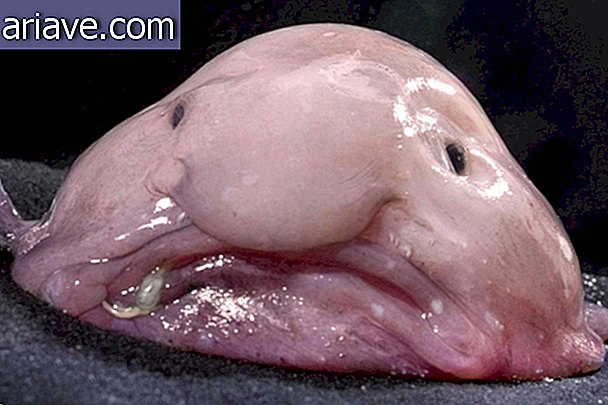Mega Women: Maria Clara Araújo
She started calling me “my angel” with that beautiful accent of the people of Recife. I remember reading one of his texts about a couple of years ago, and then, as I usually do with those who love writing, I started following his Facebook posts.
Every small or large post from her taught me something and made me chase after more information. It was also with her that I understood that I am socially privileged to be who I am, and that being who I am was not exactly a matter of choice on my part.
White, heterosexual and middle class, I will never know what a person like Maria Clara Araújo dos Passos, black, transsexual and peripheral - lived - that does not mean, however, that I cannot recognize my privileges and give voice to this amazing human being that needs to be known and must occupy public spaces and become a representative figure.
Historical intolerance

As Maria Clara reminded me, Brazil is the country where there are the most murders of trans people around the world. Out of intolerance, transphobia, prejudice, cowardice and lack of information, trans women like Dandara lose their lives in a cold, cruel and inhuman way.
Historically, transgender people are not socially accepted, can not get normal jobs and, through the fetishization of their bodies, find prostitution a way of survival, with the fact that the same man who pays to have sex with a transvestite is the one who participates. of her death, either directly or indirectly: “In Brazil, we have the culture not only of the consumption of transvestites, but also of their extermination, ” he summarized.
Extermination is also at home, as transvestites are often viewed in a derogatory manner and, since they talk openly about their transsexuality with their parents and relatives, are usually reneged on by their own families.
Representativeness

From this, Maria Clara explains that transgender people do not leave home, as if that were their choice - in fact, they are expelled from the homes where they were born and raised. In this sense, she sees her own privilege, which is to live in a family that can open herself to dialogue and, over time, understand her side and accept her as a trans woman.
Daughter of Catholic parents, Maria Clara told me that she needed to talk to them a lot, and it was after the age of 16, when she saw an interview of trans model Lea T to Fantastic, that she decided to talk to her parents about her own gender identity. For her, that presentation of the model on Brazilian television was the first time a trans person was shown in a non-derogatory way - and then we easily return to the issue of representativeness: it matters a lot.
It was after seeing the interview with Lea T that Maria Clara went to get information about transsexuality and finally understood herself as well as a transsexual person. By addressing the issue with her family and dialoguing with her parents about the issue, clarifying any doubts and seeking understanding, Maria Clara was finally able to build a bond of understanding with her family and place herself as a woman socially, having her identity deservedly. respected.
Origins

The situation was difficult for the family, of course, but they gradually came to understand the issue and supported Maria Clara: "The family plays a very important role in unfolding what happens when a LGBT takes over, " he said.
Maria also says that in the neighborhood where she grew up, it is normal for people, all of them, to see themselves as not belonging to the group that will one day occupy a university classroom. On the other hand, it was in her community that she participated in some social projects and started to want to enter the academic life.
The will joined the militancy, and Maria Clara finally took the place she wanted so much: today, at 21, is a student of Pedagogy at the Federal University of Pernambuco, and his speech, with quotes like those of Brazilian Paulo Freire, leave no doubt : Maria Clara already has pedagogy in discourse and practice.
Poster girl

Besides being one of the great voices of the current LGBT militancy, Maria Clara was the first transsexual woman to be a poster girl in Brazil, in 2015, when she printed the campaigns of Lola Cosmetics, a brand that is concerned with creating products for all audiences: “Having her as our brand's poster girl gives chance for other trans girls to realize that they have a right to be whatever they want, ” the brand spokeswoman said in a letter to Carta Capital.
For Maria Clara, this opportunity opened doors for people in general to begin to recognize transsexuals as human beings: “I think that every conquest of a transvestite in general is part of a whole process of humanization of our identity, as all dehumanization process to which we have been subjected for decades in Brazil ”, comments that she reminds that transsexuals are recurring victims of violence, torture and, in the past, they were considered sick by medicine.
Making the difference

That's why she believes that occupying spaces like those she occupies - poster girl, speaker, digital influencer, and college student - is important, as this is what helps humanize these people and show them to more men and women. transsexuals that, while there is so much intolerance, we are at a time when we can see transgender people creating their own narrative and constructing stories that go beyond marginalization and fetishization.
“I believe that over the past three, four years we are having a buildup of wins and counter-narratives from what we have been told. Anyway, I think it's very important that we also look at the past, understand? To recognize the number of transgender and transvestite people who had to die in order for me, for example, to be in university. My being at university today is the result of all this process that came long before me, you know? ”
Not only do I understand, but I have decided, along with the entire Mega team, to start our little Mega Women series with her. The idea is to talk about some contemporary women who make a difference - and if there's anything Maria Clara has done, that's it: difference. And history too.
***
Taking advantage of the occasion, how about checking out the special playlist Mega made for this International Women's Day?











